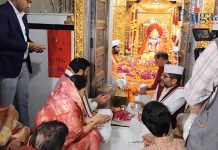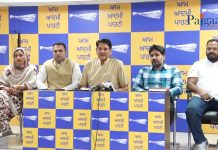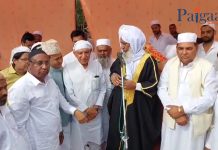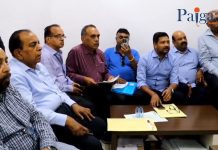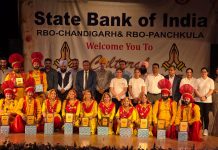“Samaye hain wo aankhon me, jigar me, dil me, seene me; nazar aaye na kyu kar Ram iss chote se nagine me”, utters Hanuman in Urdu while conversing with Sita in the play.
Ever since the institution’s inception in 1935 in undivided India’s Lahore, the Ramlila at Panjab University is still preserving the 83-year-old tradition of performing the mythological play in Urdu language.
Formerly run by the Shri Arjuna Amateur Dramatic Club in Lahore, the Ramlila at the varsity is being run by the Hari Naam Sankirtan Prachar Mandal since 1975 in Chandigarh.
Ten years ago, the script was also translated to Devanagari (Hindi) from Shahmukhi (Urdu) as it was illegible for the new generation who would take part in the Ramlila.
The original pages of the Urdu script of the Ramlila are now sealed and kept safe in the university. Though the Ramlila at Panjab University has no professional artistes, its employees and children leave no stone unturned to resurrect the age-old memories of Panjab University’s Lahore manch in the early 90s.
“Some have retired while a few have departed to the heavenly abode. There was a time when the strength of the onlookers dwindled. They were more attracted to television. But in the past few years, the Ramlila again witnessed an increase. It is because people now want to see culture and tradition,” said Deepak Kaushik, General Secretary, Hari Naam Sankirtan Prachar Mandal.
Kaushik adds, “By not altering the script or dialect, we are maintaining our culture. I will retire in the years to come and have trained a person already who will keep the things in order as they were in the past.”
The Ramlila still uses dholki and harmonium as the only musical instruments.
“We do not change the style and form of the Ramlila. It is still presented in the same way. Even the musical instruments are kept the same. We have not introduced any new musical instruments in our play,” said Kaushik.
Rajan Sharma, who plays the role of the Rama, has been epitomising secularism through the dialogues. He says: “This is not just a Ramlila stage, but it also reflects the secular character of India. We can separate Lahore, but not Urdu from our nerves.”


